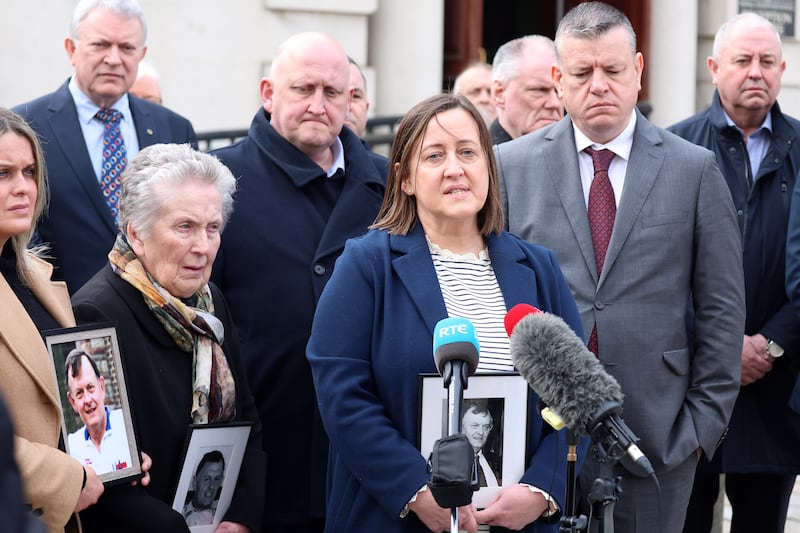The family of murdered GAA official Sean Brown has repeated its pledge not to engage with a controversial legacy body in its fight for the truth.
Siobhan Brown was speaking after Secretary State Hilary Benn suggested her family should talk to the Independent Commission for Reconciliation and Information Recovery (ICRIR).
The disputed body was set up under the British government’s Legacy Act, which was introduced last year.
While the British government says the act will be repealed and replaced, it plans to retain the commission.
Many people impacted by the Troubles are strongly opposed to the ICRIR, believing it is part of British government attempts to protect state participants from accountability.
Last year the Court of Appeal found that a British government veto over sensitive material that can be disclosed by the commission to relatives of the dead is not compatible with human rights laws.
Mr Brown (61) was attacked and beaten by a LVF gang as he locked the gates at Bellaghy Wolfe Tones GAC and later shot dead.
It emerged during an inquest hearing into his death last year that more than 25 people had been linked by intelligence to the murder, including several state agents.
It has also been revealed that a suspect in the murder was believed to be a serving member of the Royal Irish Regiment, while another suspect held a personal protection weapon and was regularly visited by a police officer at his home.
Last year a high court judge Patrick Kinney, who was sitting as a coroner, was forced to abandon the Brown inquest and wrote to then Tory Secretary of State Chris Heaton-Harris to ask for a public inquiry.
Last month a second high court judge, Mr Justice Michael Humpreys, also concluded there needs to be a public inquiry.
This ruling has since been appealed by Mr Benn.
Writing in the Irish News on Saturday, Mr Benn referred to Mr Brown’s case and urged all “those still searching for answers, for justice or for acknowledgement of what happened, to talk to the commission to hear and discuss what they propose”.

Ms Brown rejected the ICRIR as a means of finding out the truth.
“The ICRIR will not help our family, there are concerns with their approach to sensitive material, lack of involvement with families and ultimately the Secretary of State will have the final say and if there is a threat to national security by releasing information as part of the inquest process what difference is that going to make in an ICRIR process,” she said.
“The only way forward in daddy’s case is a public inquiry.
“Two high court judges have directed a public inquiry should be held, the chief constable has said he would not stand in a way of a public enquiry, as does Micheál Martin.
“The family are not willing to engage with the ICRIR.”
In his article Mr Benn said there are “number of families, including the family of Sean Brown, whose inquests were brought to a premature end”.
Last year an inquest into Mr Brown’s death was abandoned when the coroner confirmed he was unable to complete the legal process due to PSNI and MI5 failures to disclose vital information.
Both made applications for multiple redactions to sensitive documents connected to the murder under Public Interest Immunity (PII).
PII certificates are used by state agencies to withhold information they do not want in the public domain.
Ms Brown said her father’s inquest was not “brought to a premature end because of the Legacy Act”.
“It was brought to an end because the coroner couldn’t discharge his duties due to the extensive sensitive material that MI5, PSNI and MoD didn’t want divulged,” she said.






